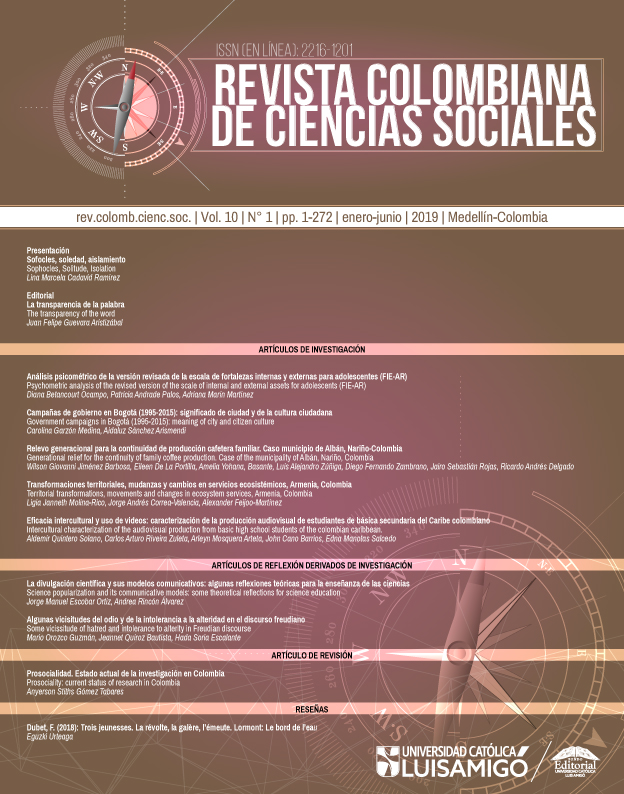The transparency of the word
DOI:
https://doi.org/10.21501/22161201.3056Abstract
If the Word is transparent, it would be necessary to distinguish what results transparent through you, of what not. Maybe we look familiar and a little bit problematic say that, in the word, if some contents or specific referents do not become transparent, if a disposition or mental process becomes transparent. So, it happens, for example, with Miranda’s Fricker proposal (2017) around the concept of epistemic injustice, in general, and also of testimonial justice, in particular. The constitution of the testimony through the word works for Fricker as a starting point of her analysis. Nevertheless, the responsibility for the injustice of which she speaks does not fall directly on the testimony and who says it, but on who listen it, so that the listener incurs in an injustice when disparages the epistemological value based on racial prejudices, of class or gender, to name a few.
Downloads
References
Cohn, D. (1988). Transparent Minds: Narrative Modes for Presenting Consciousness in Fiction. Princeton: Princeton University Press.
Fricker, M. (2017). Injusticia epistémica: el poder y la ética del conocimiento. En R. García Pérez (Trad.). Barcelona: Herder.
Hamburger, K. (1995). La lógica de la literatura. En J. L. Arántegui (Trad.). Madrid: Visor.
Downloads
Additional Files
Published
How to Cite
Issue
Section
License
The magazine and the individual texts published in it are protected by copyright laws and by the terms and conditions of the Creative Commons Attribution-NonCommercial-NoDerivatives 4.0 International License.











